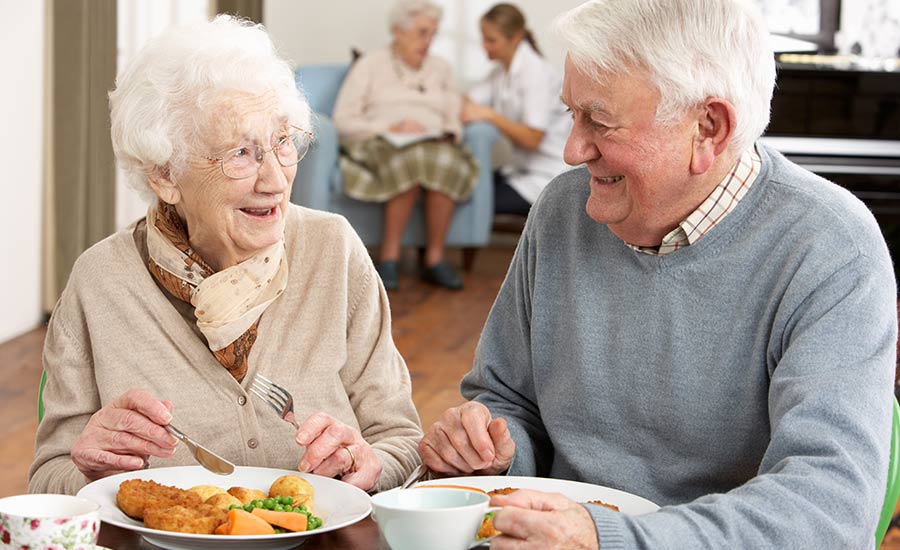How Taste Buds Change as You Age [+ Tips to Boost Appetite]
![How Taste Buds Change as You Age [+ Tips to Boost Appetite]](https://cdn.alwaysbestcare.com/wp-content/uploads/2024/08/taste-buds-change-hero-image.jpg)
Did you know that adults have around 10,000 taste buds? Each tiny bump contains specialized cells that identify flavors such as sweet, salty, bitter, sour, and savory in the food you eat.
However, as people age, their taste buds shrink, which can make eating difficult and lead to frequent complaints of lost appetite among elderly individuals.
In this article, we’ll explain why taste buds change with age, share tips on how to manage the sense of taste in the elderly, and answer frequently asked questions about changing taste buds.
Table of Contents
Do Taste Buds Change with Age?
Yes, taste buds do change as we age.
As people age, their taste buds shrink, become less sensitive, and reproduce more slowly, leading to a reduced sense of taste. In fact, seniors first notice this loss of taste with salty and sweet foods.
To compensate for the lack of taste, elderly individuals often prefer stronger flavors or more seasoning on their meals.

How Often Do Taste Buds Change?
The average person’s taste buds typically regenerate every 10 days to two weeks. However, this rate can slow down as people age.
Factors, such as smoking or excessive alcohol consumption, can also affect the rate of regeneration and the overall health of taste buds.
What Causes Loss of Smell and Taste?
The loss of smell and taste in the elderly can be caused by several factors:
- Aging process: As people age, their sensory receptors, including those for taste and smell, tend to decline in number and sensitivity.
- Medications: Medications commonly prescribed for the elderly can interfere with taste and smell. For example, medicine for high blood pressure or cholesterol can change the mouth’s chemical balance or reduce saliva.
- Health conditions: Health conditions, such as Alzheimer’s, Parkinson’s, diabetes, and viral infections, can impair an individual’s sense of taste or smell.
- Nasal polyps: Nasal polyps, which are soft, noncancerous growths in your nasal passages or sinuses, can also affect your sense of smell.
- Nutritional deficiencies: The lack of certain vitamins, such as Vitamin B12 or iron, can affect an individual’s sense of taste or smell, as they are essential for facilitating taste and smell receptors.
- Head or facial injuries: If you have a head injury, it can damage the olfactory nerves that are responsible for sending scent signals to your brain.
- Dental problems: Oral health issues, including gum disease, can also contribute to sensory loss. For example, gum disease can cause inflammation and damage to the tissues in the mouth, which may impact the nerves related to taste.
- Smoking: The chemicals found in cigarettes, such as formaldehyde, arsenic, and benzene, can cause your taste buds to lose their shape and become flatter.
- Radiation therapy and chemotherapy: Treatments for cancer can affect saliva production and the mucous membranes in the mouth and nose, impacting taste and smell.
How to Improve Your Elderly Loved One’s Appetite
As people age, they frequently experience changes in their sense of taste, which can diminish their enjoyment of food.
When caring for your elderly loved one, it’s important to be supportive as they navigate this challenge.
Here are some tips to help them cope with changing taste buds or losing their sense of taste:
- Establish regular mealtimes to help set your elderly loved one’s body’s internal clock, which can stimulate their appetite when it’s time to eat.
- Make sure your elderly loved one maintains their oral hygiene by brushing, flossing, and using mouthwash regularly. This helps prevent dental issues and the potential need for dentures.
- Get your elderly loved one involved in planning meals to spark their interest in food and encourage them to eat more.
- Offer compliments and words of encouragement to your elderly loved one to help boost their morale. For example, acknowledge their effort to eat especially on days when their appetite might be low. This can help make eating more positive and motivating for them.
- Reduce distractions and stress during mealtimes to make eating a more relaxed and enjoyable experience. For example, play soft background music to help create a soothing atmosphere.
- Enhance your elderly loved one’s meals by adding herbs like basil, oregano, and rosemary. These herbs can help boost flavor without increasing sodium intake, which is particularly beneficial for seniors with dietary restrictions.
- Make sure to serve foods at their intended temperatures to help boost the flavor of your elderly loved one’s meals. For example, always serve soups piping hot, and salads cool and crisp.
- Encourage your elderly loved one to drink more water, as staying hydrated can help improve their sense of taste. To make water more appealing, consider adding slices of fruits or cucumber to their drinks for a refreshing flavor.
- Introduce different textures to your elderly loved one by combining different textures in meals to stimulate the appetite and make eating a more enjoyable experience. For example, you can include a side of crunchy salad, velvety soup and a piece of soft, baked fish in your loved one’s meals.
- Use lower-sodium alternatives instead of adding salt to your elderly loved one’s meals to strengthen flavor. For example, incorporate milder cheeses like mozzarella, cream, or ricotta, which can add flavor and texture without the need for extra salt.
- Ask your elderly loved one to avoid foods that tend to taste bitter or metallic, such as bitter gourd, which can be off-putting. This is particularly important if these flavors become more pronounced due to medication side effects or changes in taste perception.
- Encourage your elderly loved one to avoid the monotony of eating the same meals by trying out new recipes and adding different foods to your elderly loved one’s diet. This approach allows them to discover new favorites and helps keep mealtime interesting.
- Complete your elderly loved one’s meals with a small, sweet treat. A little bit of sweetness can be satisfying and can make mealtime something to look forward to. Whether it’s a piece of dark chocolate or a small serving of pudding, it’s the perfect way to round out a meal.
- Serve smaller, frequent meals to your elderly loved one to maintain their energy levels throughout the day. This can also make it easier for them to taste the food and help them look forward to eating. For example, instead of serving three large meals, serve five smaller ones instead.
- Brighten up your elderly loved one’s meals with colorful foods, such as bright red tomatoes or vibrant orange carrots, to make them more appealing. Adding a splash of color can help encourage eating and make the whole dining experience more enjoyable.
- Discuss your elderly loved one’s medications with their doctor to check if they might be affecting taste. If so, ask the doctor if it’s possible to prescribe alternatives with fewer taste-related side effects.
- Arrange meals with family or friends, as socialization can help encourage them to eat more, even if their sense of taste isn’t what it used to be.

Explore Reliable Senior Care at Always Best Care
Eating isn’t just about nourishment — it should also be an enjoyable experience, as food can help boost a person’s overall well-being and happiness.
At Always Best Care, our dedicated caregivers can shop for groceries and prepare delicious and nutritious meals for your elderly loved one in the comfort of their home.
They also make sure that your elderly loved one eats regularly and follows a healthy eating schedule so they can get the right balance of nutrients every day.
If your loved one lives in an assisted community, they can have the chance to enjoy special dining experiences, such as sharing meals with friends, which can help increase their appetite.
Operating in 250 territories, we’re here to support caregivers and alleviate their challenges.
Our services include:
- In-home care: We offer 24/7 assistance, including companionship, meal preparation, nutrition monitoring, medication reminders, light housekeeping, and help with bathing, grooming, and dressing.
- Skilled home health care services: Available in select areas, our vetted and trained registered nurses, therapists, and home health aides can create an extensive and convenient care plan for your elderly loved one.
- Specialized home care services: We offer daily social interaction and clinical insights into your elderly loved one’s healthcare, right from the comfort of their home.
- Respite care services: We provide temporary relief for caregivers, ensuring your loved one receives uninterrupted, compassionate care. The duration of care can range from a few hours to several days, depending on your elderly loved one’s needs.
- Dementia care services: We offer specialized care for individuals with dementia, prioritizing their comfort, safety, and overall well-being.
- Senior living referral services: We can assist you in finding the best senior living options that match your loved one’s preferences and needs.
- Veterans assistance program: We deliver quality care for veterans and help them access the necessary funds for their care needs.
FAQs About Why Taste Buds Change
Why do your taste buds change every 2 weeks?
Your taste buds don’t change every two weeks, but they do undergo regular regeneration. This process helps maintain taste sensitivity despite daily wear and tear from bacteria, hot or spicy foods, and other irritants.
This ongoing renewal ensures that you continue to enjoy a diverse range of flavors.
What percentage of taste buds are lost after age 60?
By the age of 60, you may lose approximately 20 to 60% of your sense of taste.
How can you manage your taste buds?
To manage your taste buds, eat a balanced diet full of different flavors and textures to stimulate them effectively.
In addition, limit extremely hot, spicy, or acidic foods to prevent damaging your taste buds, and maintain good oral hygiene to prevent infections that could impact your sense of taste.





